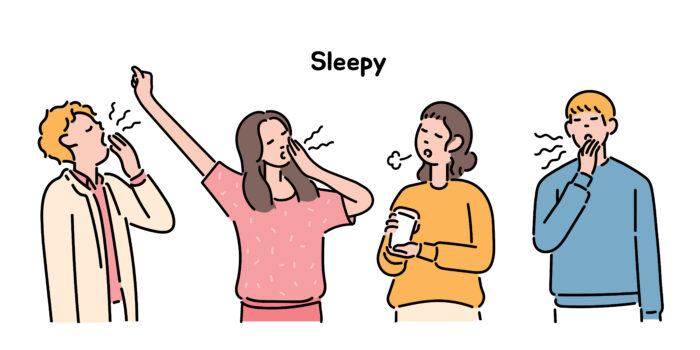Tell Me Why #5 – Why Do We Yawn & Are Yawns Really Contagious?

Welcome to BYJU’S ‘Tell Me Why’ where we explain to you the ‘why’ behind anything and everything that’s been on your mind! So go ahead and ask us a question that starts with ‘Tell Me Why’. We’ll pick the most intriguing questions and feature them along with an illustrated answer on The Learning Tree Blog.
To ask your question, fill up the form here:
Submit a ‘Tell me Why’ question
Today we are answering a very interesting question asked by class 8 student Dashmeet Kaur from Bhilai, Chhattisgarh. She wants to know:
Why Do We Yawn?
Everybody yawns — from unborn babies to the oldest great-grandparent. Animals do it, too. But why, exactly, do people and animals yawn?
Well, there are plenty of mysteries about the human body, and yawning is no exception. No one knows for sure but there are many theories about why people yawn.
We typically think of yawning as an indication that we’re tired or bored, but some people report yawning more frequently when exercising or while singing. So, if it’s not just a sign that we’re sleepy or bored, why exactly do we yawn?
So how much of yawning is mystery and how much can science actually tell us about yawns?
The theories of yawning

Yawning is a reflex characterized by a single deep inhalation (with the mouth open) and stretching of muscles of the jaw and trunk. It occurs in many animals, including humans, and involves interactions between the unconscious brain and the body, though the mechanism remains unclear.
There are many theories as to why people yawn. For many years, it was thought that yawns served to bring in more air because low oxygen levels were sensed in the lungs.
We now know, however, that the lungs do not necessarily sense oxygen levels. Moreover, foetuses yawn in-utero even though their lungs aren’t yet ventilated. In addition, different regions of the brain control yawning and breathing.
Another reason you may yawn is because the body wants to wake itself up. The motion helps stretch the lungs and their tissues, and it allows the body to flex its muscles and joints. It may also force blood toward your face and brain to increase alertness.
Other people believe that yawning is a protective reflex to redistribute the oil-like substance called surfactant (say: sur-FAK-tint) that helps keep lungs lubricated inside and keeps them from collapsing.
Why do I yawn even if I am not tired?

That’s a great question! And it’s the same question that made scientists debunk the theory about yawning when we are tired. The most scientifically backed theory about why we yawn is brain temperature regulation. A 2014 study published in the journal Physiology & Behavior looked at the yawning habits of 120 people and found that yawning occurred less during the winter. If the brain’s temperature gets too far outside of the norm, inhaling air can help cool it down.
|
|
By now, you must have understood that there is no one answer to this seemingly simple question about why we yawn. Scientists are still breaking their heads over it. But there is one part about yawning that has got everyone puzzled for years: It seems to be contagious!
If you yawn in class, you’ll probably notice a few other people will start yawning, too. Even thinking about yawning can get you yawning. How many times have you yawned while reading this article? We hope not many!
Is yawning really contagious?

Yawning is definitely contagious. Even videos of people doing it can trigger a yawning session. Try watching the video below and see if you end up yawning. Tell us in the comment section if you did catch a yawn or not.
Similar to the mystery surrounding why we yawn, experts also aren’t really sure why yawns are so contagious.
Some scientists suggests that yawning is a means of communication. We express the change in environment or internal body conditions to others through yawning. If so, then its contagious nature is most likely a means of communication within groups of animals and humans, possibly as a means to synchronize behaviour.
In the context of the brain-cooling theory of yawning, perhaps yawning evolved to become contagious as a means to increase the cognitive performance and vigilance of people within a group. While this may sound silly in today’s world, it could have been an important collective behaviour for our cave-dwelling ancestors who needed to stay alert as a group in order to survive.
While it’s not clear what yawning truly communicates, some experts believe that the contagious nature may also be a way of showing empathy and matching the emotional states between people. In fact, a recent study shows that we’re more likely to experience contagious yawning with our closest acquaintances than we are with strangers.
So, the next time you yawn, think about whether you’re tired, bored or neither, and also if you’re yawning on your own or you’re yawning because it’s just on your mind!
Also tell us in the comment section which of these theories of yawning you find most acceptable.
Also read, Why do we laugh when tickled.